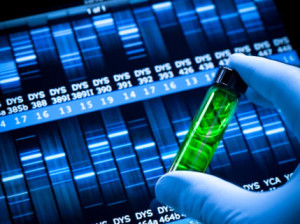
by: Peter Vine
DNA paternity testing in its purest form is the application of DNA technology to provide information about the parentage of an individual (usually a child). The mother of the child is rarely disputed, and most of the time DNA testing is requested to inform the likely father of a child.
DNA is inherited from our parents, with half coming from the mother, and the other half from the father. This pattern of inheritance allows the opportunity where the mother of the child is not disputed, to produce a putative DNA profile of the biological father. Taking a DNA paternity test Paducah is relatively simple and the final DNA profile of the child is composed of a series of bands that can only come from the two parents. If the mother’s bands are deducted from the child profile the remainder must come from the biological father. Any male that may consider himself the father can have a DNA profile produced and compared against the remaining bands in the child’s profile.
There can only be two outcomes from this type of comparison. The first is a ‘no-match’ scenario where the remaining bands in the child’s profile could not have come from the sample obtained from the alleged father. This is known as exclusion and eliminates the possibility of this individual being the biological father of the child. The second is a ‘match’ scenario where the remaining bands in the child’s profile could all be accounted for by comparison with the alleged father. If this is the case the significance of the match needs to be assessed by a DNA interpretation expert who will provide a degree of certainty associated with the likelihood that the alleged male is the biological father of the child.
Before you commission any Paternity DNA testing you should be sure you have clear answers to the following 5 key questions:
- Has the DNA testing facility been accredited by a validated external body such as the American Association of Blood Banks (AABB). If the answer is no, do not have your testing done by this company, you may not be able to rely on the results.
- Does the company carrying out the DNA testing have a thorough track-record in this area of work, and have they proved their technology in court? Be wary of companies that sub-contract their testing. DNA profile interpretation can be a tricky business, and there is a lot at stake when you commission a DNA test, and you want reassurance on the reliability of your service provider.
- Is the company you are planning to use an accredited laboratory or merely a broker? Brokers are simply in this game to make money, and have no interest in the quality or the impact of this life changing technology. Avoid them irrespective of the tempting pricing they may offer you.
- What degree of certainty does the company provide in relation to the results of the tests? An exclusion should be 100% with an inclusion at, at least 99.99% confidence levels. These are the figures that are expected in a court of law.
- Does the internal quality standard require duplication of all results before they are reported to the customer? This is an industry standard requirement which is often overlooked by some of the ‘cheaper’ DNA testing providers.
If the answer to any of these questions is unclear, my strong advice is to find an alternative provider. You simply do not want to trust such an important piece of work to a company that does not guarantee a top quality product, with excellent customer care back-up.
If you want to find out more about DNA Paternity Testing, click on the links in the author section below.
| About The Author
Peter Vine is a successful online publisher of Home-DNA-Test-Expert.com. He provides practical advice and the latest information on all aspects of DNA Paternity Testing, which you can readily research on his website. |



































